0
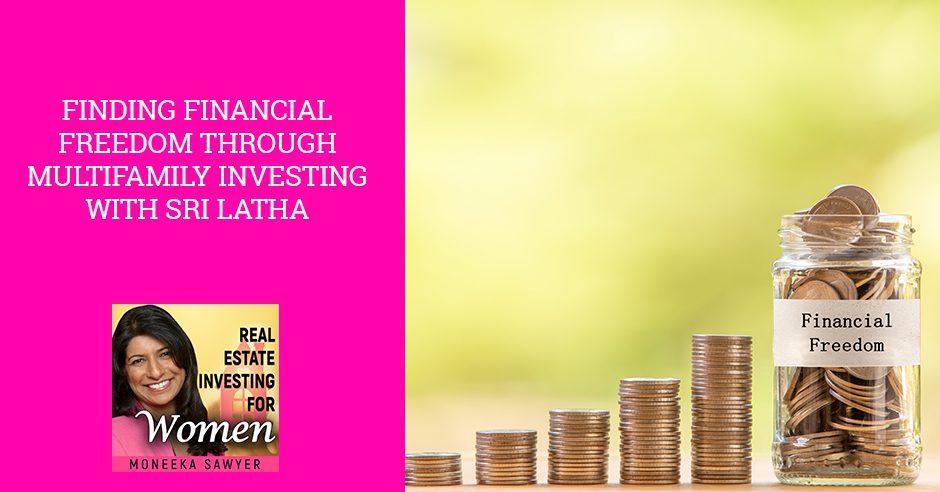
To become a successful real estate investor, you must employ some strategies, one of which is to invest in multifamilies. Moneeka Sawyer’s guest today is Sri Latha, an expert investor in commercial multifamily properties. Sri gives us an outline of how she gained outstanding results in a short period. Join in the conversation and find out why multifamilies remain lucrative even during the COVID-19 pandemic. Whether you are a new or seasoned investor, Sri will inspire you to dive right into real estate after listening to this episode!
—
Listen to the podcast here
Finding Financial Freedom Through Multifamily Investing With Sri Latha – Real Estate For Women
Real Estate Investing For Women
I am so excited to welcome Sri Latha to our show. Sri is a Business Leader with a few years in the credit scoring and real estate industry. As a former Data Scientist for FICO, building FICO scores for banks all over the world, Sri has extensive knowledge and experience with the mortgage loan process, allowing her to educate and support her clients as they pursue their dreams to own a property. She is an investor in Silicon Valley like me. She has actively invested in commercial, multifamily properties since 2014 with outstanding results. Sri shows her insights, resources and strategies, taking the fear out of real estate investing for both first-time and seasoned investors alike. Her specialties include real estate statistical modeling, credit score, business strategy, business development and analytical real estate. Hello there, Sri. How are you? Welcome to the show.
Moneeka, I’m so happy to be here.
We finally meet. We’re going to have to do that in person since we’re both local and so excited.
That’s exactly what I was going to say, too. Someday, we’ll get to see face–to–face.
Sri, tell us a little bit about the high level of your story. What brought you to real estate?
My real estate journey started with a personal, not–so–nice story. My husband got pretty sick in 2010. He found himself unable to walk one fine day. He couldn’t go to work. We were scared. It turned out he had an autoimmune disease that we were able to cure and maintain. It took a while but he’s 99% better now. That lit a fire in our bellies to get something moving in the event that something didn’t happen to him. We got into real estate with that intention. We wanted financial freedom. We wanted the ability to have him either reduce his work or stop working if it came down to that. It never did. On the other hand, our real estate investing took off. We started in 2014. It did well for us. We’ve been growing that business ever since. In 2018, I stopped working and I’ve been doing full-time real estate.
You never hope that anybody ever goes through that level of trauma. It shows us who we are. It shows us how strong we are and what we’re capable of. It lights a fire under us like nothing else can. I‘m glad you came out on the other side with so much success. I’m glad he’s doing well.
That was always the most important part. Once we established that he would be getting better and he did and then we supercharged our real estate stuff towards that goal. Unlike my peers, I’m still in my 30s, it feels like, “How did you even think about this stuff that early?” It’s simply because we were put in that situation where it made us think that far ahead.
Tell us a little bit about your strategy. I know that you live in Silicon Valley. You’re 10, 5 miles away from me. We’re in a similar market. The ladies that are reading know that I do executive properties. They also know that we play mostly or I for appreciation. I usually cut even and then I play for appreciation here. I’m making some shifts for cashflow now as I’m thinking about retirement. My strategy is in transition. Normally, we don’t talk about cashflow in Silicon Valley and yet you do it. Tell us a little bit about what you’re doing in this high–cost of living area to make that happen.
When I started, I bought into that narrative as well, which was, “You can‘t cashflow in California. What are you trying to do with apartments?” Cashflow is tied to the value of the apartment. It’s all connected. I first started my investing career out of state and then I brought my money back to California. Even I couldn’t afford California when I first started. I took my money out of state, doubled it in a year and a half and then brought back enough about $700,000, which I then invested into an apartment here in California. To answer your question, the strategy that I‘d use is I buy in rent–controlled markets. Historically, San Francisco, Oakland, Berkeley, they were all rent–controlled for decades.
There are apartments that are way below current market rents. An apartment now in Oakland, a one-bedroom is paid $2,500. Oakland has been historically rent–controlled. Probably, a one–bedroom is at $600, $700, way below where the market is. The strategy involves buying an older, value–add apartment, which has work that needs to be done. Talk to the tenants and negotiate what I call Cash for Keys. It has been used all over the country. It’s an agreement between the landlord and the tenant to pay an agreed-upon sum of money in return for an empty apartment.
You talk to the tenant. If they’re willing to talk to you then you come to an agreement on what amount of money would be paid for leaving the apartment. Once you do that, you would draft up a piece of paper that says that. You pay them the money. You are left with an empty apartment that you can now renovate and put it back on the market at that $2,500. There are lenders who will lend you both on the renovation, purchase and the Cash for Keys. They’ll even pay you the amount of money you need to pay the tenant.
What if a tenant says no?
If they say no, it’s a no. There’s nothing you can do. You can wait six months and then you can go back and initiate a conversation. What I recommend is while you’re in contract on a property to start the conversation so you know how many people are likely to move out. If you are not going to make the cutoff to make your numbers work then back out of the deal. If you are able to hit the numbers that you’re looking for then you move on. When I started, I did not have this piece of information so I took a chance. What I found is as you buy more and more number of units, about half the units tend to turn. People are willing to move out and all of that good stuff. I recommend folks to talk to the tenants while you’re in contract to know for sure where you’re going to land with that.
Fifty percent is enough to make the numbers work. Is that true?
It is enough, in most cases. It’s case by case. In most cases, 50% is enough.
Talk to me a little bit more about the value–adds that you put in.
I do heavy lifting value–add, which means I gut the whole unit. Historically, I’ve had success with converting studios to 1–bedrooms, 1–bedrooms to 2–bedrooms. We live in such a dense area, you can get a significant bump up in rent if you did that even if it’s a small one–bedroom. My studios are probably 475, 450 square feet. I was still able to add a bedroom by removing the kitchen. If you think of an older apartment, kitchens used to be a separate room. People don’t want that anymore. They want the open kitchen floor plan. We moved the kitchen into the living room, took some of the square footage that was previously a kitchen, added some more from the living space and then made a separate bedroom. That allows us to bump up rents $300 more than what I would have gotten for a studio.
I know this number is not correct but I’m going to give some examples to keep it easy. You’ve got a studio that should rent for $1,000. Maybe it’s renting for $500. You do Cash for Keys to get them out. Normally, you could do a basic cosmetic refurb and get people in for $1,000 just by doing that. Now, you cut even on your Cash for Keys. If you gave them $2,000 to move out, now you’re up in here than at four months. You’re getting a better range. You can refinance from there. However, you’re not even stopping there. You’re turning that studio that would normally go for $1,000 into a one–bedroom. It might go for $1,500 to increasing your rent significantly more, correct?
That’s exactly right. It still ends up being a junior one–bedroom. You may not get the $1,500 but you’ll get $1,400 or $1,350. It’s still a significant amount on top of what you were expecting to get. Usually, a city does not have a problem with that kind of conversion because you’re not increasing the square footage at all of the unit. You’re just changing the interiors. Once you establish that with one of your units, you can now do that for the rest of them.
You do need to get city approval for all of that stuff. How big are the communities you‘re buying? What are the apartment building sizes usually?

Multifamily Investing: It all starts with a good broker who then refers you to the right people.
Usually, I buy 12 to 20. That’s the range that is the sweet spot. I do sometimes buy portfolios of smaller properties. If someone wants to unload say 3, 4 or 5 units, I might buy those as well. I found over the last few years from my experience that I prefer the big one, as opposed to many small ones. It takes away from your mental capacity to manage five as opposed to managing one.
Also, with lending, when you buy a portfolio, do they lend on the whole portfolio? Do you have to get each one separately?
They do lend on the portfolio. It’s a little bit more complicated when you sell it off piecemeal. There are some nuances there for sure. I tend to use hard money lenders when I buy in California. Those are the lenders who would finance a property that is so under market, where the rents are so terrible and no one else would put a bank loan on it. The hard money lenders are the ones who would finance either distressed properties or properties that are severely under market.
What kind of terms do you get with them? Do you still do a five-year with them? Do you do a shorter term and then refinance with a normal bank after?
Correct. It’s a shorter term. It’s about a year to eighteen months with an optional extension. The interest rates are 9% to 12%. They’re pretty high. The goal after it’s stabilized, you will then refinance with a permanent loan, say 5 years, 10 years, something like that.
You mentioned something about a hotel conversion. Can you talk to us about what you’re doing around that?
I’m in contract on a hotel to multifamily conversion out of the state. I’m in Albuquerque, New Mexico. That’s where my property is located. I’m still in contract and yet to close but now we just got financing and all that good stuff in place. That’s exciting. What that strategy is, one, we are in COVID. Hotels are badly hit by COVID. Therefore, there are hotels that are looking for buyers before they go into severe distress. They’re looking for buyers because they anticipate going into distress down as time goes on. We were able to find properties that were already zoned for multifamily. They’re a hotel but the land use allows that piece of property to also function as a multifamily property. I only went after those kinds of properties because rezoning, generally speaking, is a nightmare. You don’t want to get caught in that web.
I went after properties that would allow me to convert to multifamily without that extra work. Once I identified those properties and I called the hotel broker, who did all the talking for me and got us in contract and now I’m putting kitchens in each of those hotel rooms and converting them to studio units. Why this strategy works is I buy a hotel room at $20,000. I put in about $15,000 of work. Now, I’m at $35,000. A multifamily per unit sale price is at $70,000 in that market. I’m buying, finishing and stabilizing every unit at $35,000. I get to sell it at $70,000 in a reasonably good location. That’s how that strategy plays out. I’m in the process of doing it.
Are they condo conversions or apartment conversions?
They’re not condos. They continue to be multifamily rental apartments. You can condo–convert. One thing that happens a lot in San Francisco and Oakland is you buy a multi and you convert it to condo conversions. The problem with that is condo markets are very volatile. By the time you were converted, it takes about a year and a half to do that. By the time you’re done, you don’t know if the market’s going down or up. With a lot of new construction coming into San Francisco and Oakland, it’s hard to compete with smaller multifamily when they’re looking at nice, new buildings. Condo conversions exist in California. The one I’m targeting is a hotel–to–apartment conversion and it cashflows well. It makes a profit on the back end when you sell.
Why did you not do any of those in the local area? Were they not available?
There are two aspects of it. One, you need a hotel that’s a little bit older, like built in the 1970s or so. You need an influx of a lot of new hotels in that neighborhood or that city, where people are not patronizing the old hotel as much and they’re not operating at capacity. The last thing is the zoning needs to lend itself to that conversion. We came across a property that was already zoned in Albuquerque and that’s how the light bulb went off. We pursued that market strongly until we got into a contract on one that worked for us. The truth is, zoning is so varied and so incredibly nuanced. It’s very hard to just pick 5 or 10 markets where everything fits. We’re nearly half now. I’m in the process of digging into particular markets where this zoning is similar to Albuquerque, New Mexico where I can then implement this in other markets.
How do you find your teams and staff in those out-of-state markets?
When you go out of state, it’s like, “You know nobody. How are you going to set things up?” I think it all starts with a good broker. Honestly, from my last experience with investing in Dallas and this experience in Albuquerque, it starts with a good broker who then refers you to the right people. The second is I also happen to be a realtor. I get to dig into like, “Who owns what? Which banks are funding what? Who did which deals?” CoStar has been very helpful in the process of going out of state. Now, I know who are the agents who are doing big deals in that state or who are the agents at least working within the unit sizes that I’m looking for. “Who are the banks that are financing these kinds of properties?“ I know all of that stuff from CoStar.
CoStar, is that available to people that are not realtors?
It is available to investors now but there’s a high price tag on it. Let’s put it that way. It’s a commercial MLS, where all commercial properties show up. If you’ve heard of LoopNet, LoopNet is owned by CoStar. CoStar is the parent company. It owns LoopNet. LoopNet previously had a lot of information on it. Once CoStar bought them, they took off a whole bunch like you can‘t find comps and the cap rates. It’s very hard to get information from LoopNet. Now, they want you to buy CoStar and get a license. You have access to a lot of data. They have even city–specific data like household income. You can sort all over the country by population growth, household income, all of that good stuff. It helps narrow down your out-of-state markets significantly.
How do you find a good broker out of state?
I would pick up the phone and call.
It’s the conversations to find somebody that you feel comfortable with. Is that true?
No.
It’s just pick up the phone, make phone calls and then you’ll pick somebody that you feel comfortable with.
The first initiation is usually they tend to have a listing that’s on the market. You call specific to that listing. You may not end up buying that one but you get in conversation with the broker itself. For multifamily, I also recommend Marcus & Millichap. They’re all over the US. They’re a brokerage firm. Someone who’s at the associate or senior associate level tends to be hungrier for newer investors. At that point, they’ll be willing to work for you.
Tell me a little bit about investing out of state. Like you said, initially, you invested out of state, doubled your money and brought that money back. What were you investing in then? What was the strategy that you were using that you said you doubled your money with?
The strategy is simple. It’s the value–add apartment strategy. You buy an apartment that is renting a little bit under where the market is. I would go in there and renovate the units as the lease ends. Whenever the lease ends, unlike in California where you can’t have your tenants move out at the end of the lease. States outside, which are more landlord–friendly and not rent–controlled, will allow you to go in there and renovate your units whenever the lease ends. When the lease ends, I would go in there, renovate those units, put in washer dryers, make them more attractive and then put them back on the market at the new rents.
I did that for all twelve units. In a year and a half, I was done with all twelve of them. I put that property back on the market. These apartments make more income now. The crux of the strategy is that apartments have valued on income. When your net income is now increased, that property is now worth a lot more than when you bought it. The down payment that I put in was about $300,000. I walked away with about another $300,000. I walked away with about $700,000 and I brought that back to California.
This is something I want you ladies to understand. She said something key here. This is something you want to know when you’re looking at value-add and that thing with apartment buildings. We’ve talked about this before on the show. Lending for buildings that are five units or more is based on the rental income. It’s not just the rental income. There is other income. There’s from laundry and other things, parking. There are other places that you can get income. The income of the property is what you get your loan based on. It’s not based on your personal credit score or your personal financials. It’s based on the income of the property. That’s the difference between when you’re getting a loan for anything that’s four units or lower or if you’re going for five units or higher.
That’s exactly right. That makes a huge difference in the value–add strategy from the point of view of an investor. You now know how to control the value of your property simply by increasing its income or reducing its expense. By doing both, you can now supercharge your investing strategy. You do that on one, you unlock the value on that property. You sell it. You do it again, you unlock the value on that one. If you find yourself in a market that has suddenly turned, you do nothing. You just hold on. It cashflows like it would normally do.

Multifamily Investing: Cashflow is tied to the value of the apartment.
You can choose to renovate or hold off on renovations until you’re certain where the market’s going. It lends itself to a safer strategy. The lenders that I used in out-of-state markets are the commercial banks, did fund those deals, unlike California where I use those high–priced loans where you‘re forced to refinance, which is much harder. You don’t want to put yourself in that situation. If you’re going out of state, you have way more ability to control the financing aspect of it because you’re now in an apartment that makes money.
Do you have any other states that you particularly like? Do you just look for specific projects?
I started out in Texas. That’s always a good one. Half of California is moving to Texas. Texas is always a good one. Florida is another favorite. The rest is just based on the deal itself. I try to get in contract on the deal. If it looks good on paper, I try to get in the contract first. It’s either me or my husband who flies out there and looks at the property.
I have never heard of this particular strategy. Thank you so much for bringing that to my ladies. I know in EXTRA, we’re going to do an even deeper dive. You’ve given some good details on how this works but it is still high–level. Ladies, she’s going to go into a deeper dive and give us some real specific pieces of the strategy and a breakdown of the numbers so we can see exactly how she’s implementing. We’re going to be talking about that in EXTRA. Stay tuned for that. For now, Sri, tell us how my ladies can get in touch with you.
I have a website. It’s TheSriLathaGroup.com. My name is Sri Latha. It just goes with that. I’m on Instagram as @BayArea_Multifamily. It’s fairly straightforward. I’m also on Facebook. I have a Facebook group called Bay Area Apartment Investing Mastermind. If you’re local to California or any high–cost of living area and you want to know the inside strategies or want to ask me a question, you can go on Facebook. Search for Bay Area Apartment Investing Mastermind. You’ll find the group and feel free to talk to me there.
Thank you so much. I know that you’ve got a free gift also that you wanted to offer my ladies.
Yes. I do have a link to Apartment Investing Basics video where I go into more details of why apartments are different from four units and under or residential, how to add-value to apartments, how to increase the value of your property specific to apartments and some examples of what I’ve done in the past.
That’s a Vimeo URL, ladies. Go ahead and look for that there. Thank you for that.
Thank you, Moneeka.
Are you ready for our three rapid–fire questions?
I am.
Sri, tell us one super tip on getting started investing in real estate.
The super tip I have for your readers is to not use anybody else’s calculator. That’s how I got started. Put the numbers into a blank Excel spreadsheet. That’s my tip. You will learn so much from doing that. You won’t have any hesitation jumping into a property after you build your calculator. It’s a great way to get started.
What is a strategy for being successful in real estate investing?
My strategy or tip for that is when you’re in your early stages of real estate investing, try to exponentially grow either the number of units or your strategy itself should lend itself to exponential growth. You don’t want to buy one and then never sell it for 30 years. Maybe I’m not talking to the majority of the people out there. I truly believe in growing your strategy exponentially, where you buy, unlock the value, sell it and upgrade to bigger and larger number of units. Holding onto one and then saving enough to buy another is going to take forever. I highly recommend exponential growth in the early stages of your real estate investing so that you can cut that 20–year time frame to 10 or to 5 even.
What is one daily practice that you do, Sri, that you would say contributes to your personal success?
As a mom of two kids, it has to be my morning routine. I wake up before my kids do. Otherwise, you’re not going to find any time to do anything. My kids are 2 and 4. I try to wake up before they do. I do some meditation, some affirmations, some journaling. All of that keeps me sane through all of the madness of real estate.
In my book, Choose Bliss, one of the very first strategies that I talk about for bliss is setting that morning routine. The thing is we all have a morning routine anyways. For most of us, it doesn’t serve our day. It doesn’t set us up for success and bliss. It normally just gets us out the door frenzied. Thank you so much for that. Sri, this has been amazing. Thanks for all that you’ve shared on this portion of the show.
Thank you so much for having me, Moneeka. It’s always fun to talk to you.
Ladies, thank you for joining Sri and I for this portion of the show. If you are subscribed to EXTRA, stay tuned. We’re going to be talking more deeply about the specifics of this strategy that Sri shared with us. We’re going to get more specifics on how to create the strategy, implement the strategy and also some more of the numbers to hash that out for us. I’m excited about that. If you’re not subscribed to EXTRA but would like to be, go to RealEstateInvestingForWomenExtra.com. You‘ll get the first seven days for free. Come check us out. If you don’t love it, you don’t have to subscribe. For those of you that are leaving us now, thank you so much for joining Sri and I for this portion of the show. I appreciate you and I can’t wait to see you next time. Until then, remember, goals without action are just dreams. Get out there, take action and create the life your heart deeply desires. I’ll see you soon. Bye.
Important links
About Sri Latha
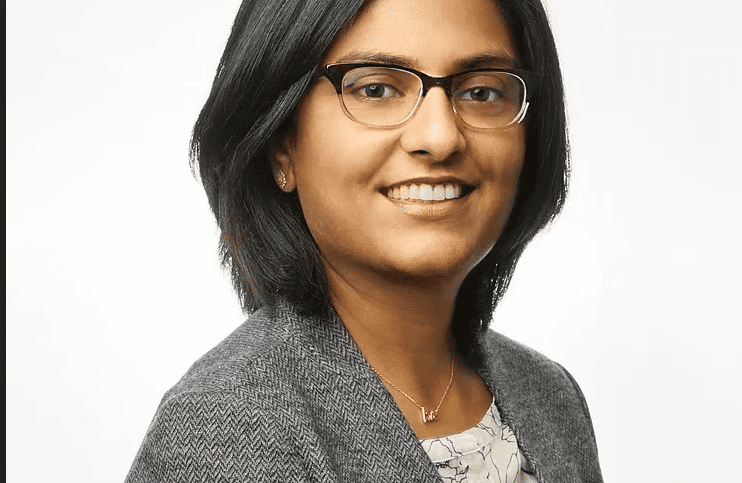 Sri is a business leader with over 6+ years in the Credit Scoring Industry and over 6+ years in the Real Estate industry. As a former data scientist for FICO, building FICO scores for banks all over the world, Sri has extensive knowledge and experience with the mortgage loan process, allowing her to educate and support her clients as they pursue their dream to own property.
Sri is a business leader with over 6+ years in the Credit Scoring Industry and over 6+ years in the Real Estate industry. As a former data scientist for FICO, building FICO scores for banks all over the world, Sri has extensive knowledge and experience with the mortgage loan process, allowing her to educate and support her clients as they pursue their dream to own property.
An investor in Silicon Valley, Sri has actively invested in commercial multi-family properties since 2013 with outstanding results. Sri shares her insights, resources and strategies, taking the fear out of real estate investment for both first-time and seasoned investors alike.
As a wife, mother of two and resident of the Willow Glen area of San Jose since 2008. In her free time, Sri loves Bikram Yoga and hiking with her dog and her family.
Love the show? Subscribe, rate, review, and share!
Join the Real Estate Investing for Women Community today:>
——————————————————
To listen to the EXTRA portion of this show go to RealEstateInvestingForWomenExtra.com
To see this program in the video:
Search on Roku for Real Estate Investing 4 Women or go to this link: https://blissfulinvestor.com/biroku
On YouTube go to Real Estate Investing for Women

Moneeka Sawyer is often described as one of the most blissful people you will ever meet. She has been investing in Real Estate for over 20 years, so has been through all the different cycles of the market. Still, she has turned $10,000 into over $5,000,000, working only 5-10 hours per MONTH with very little stress.
While building her multi-million dollar business, she has traveled to over 55 countries, dances every single day, supports causes that are important to her, and spends lots of time with her husband of over 20 years.
She is the international best-selling author of the multiple award-winning books “Choose Bliss: The Power and Practice of Joy and Contentment” and “Real Estate Investing for Women: Expert Conversations to Increase Wealth and Happiness the Blissful Way.”
Moneeka has been featured on stages including Carnegie Hall and Nasdaq, radio, podcasts such as Achieve Your Goals with Hal Elrod, and TV stations including ABC, CBS, FOX, and the CW, impacting over 150 million people.

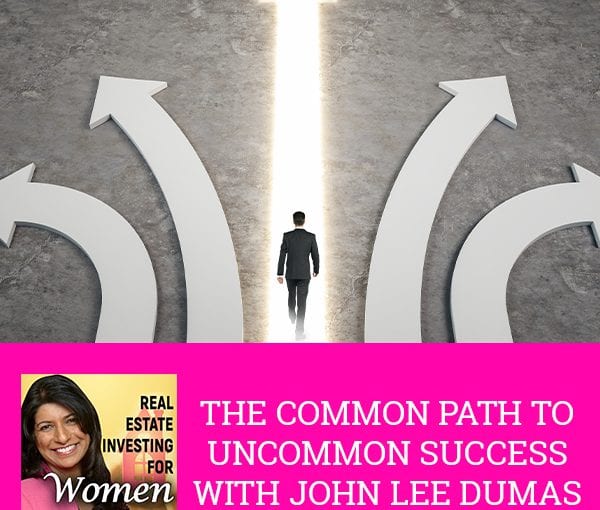
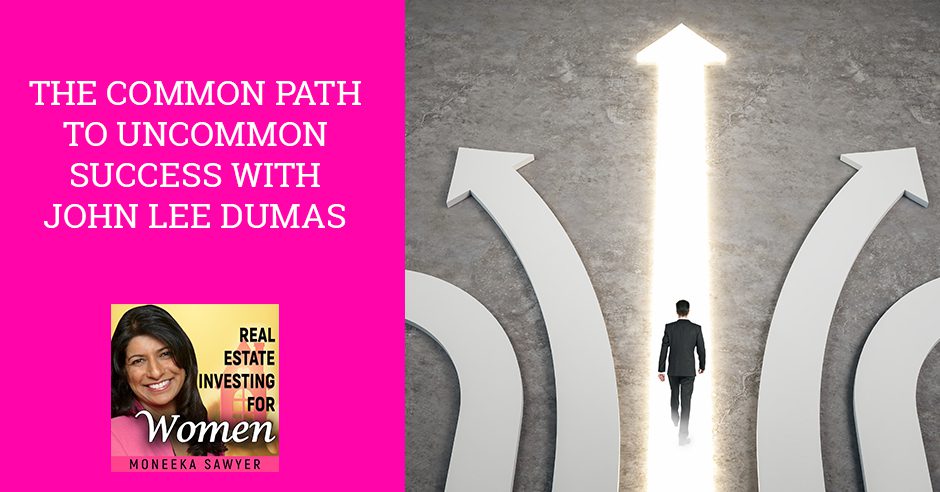
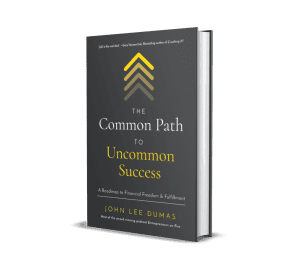








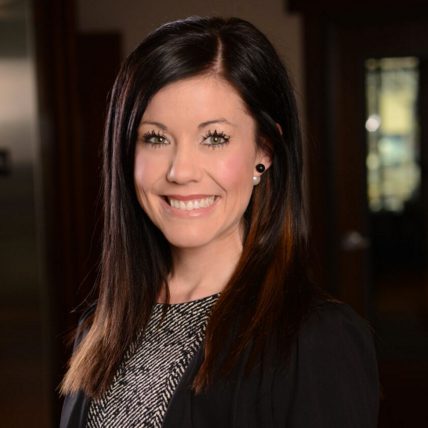 Stacy is the owner of a 7-figure real estate company, and Founder of The Truth Teachers™ and Ultimate Breakthrough Accelerator™. Her programs consist of intuitive 1:1 consulting, group coaching, and an exclusive certification program.
Stacy is the owner of a 7-figure real estate company, and Founder of The Truth Teachers™ and Ultimate Breakthrough Accelerator™. Her programs consist of intuitive 1:1 consulting, group coaching, and an exclusive certification program.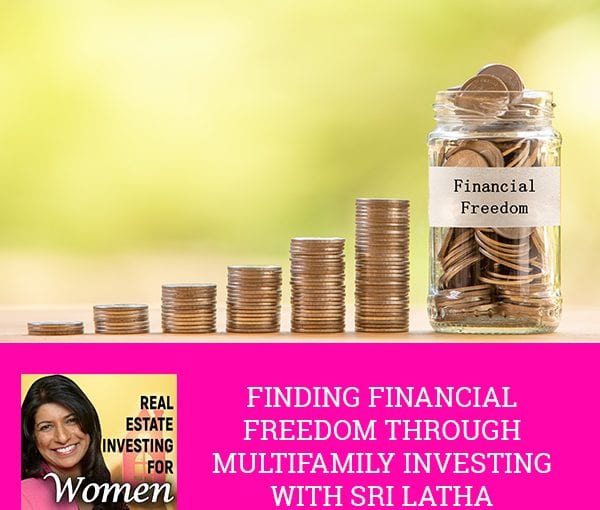



 Sri is a business leader with over 6+ years in the Credit Scoring Industry and over 6+ years in the Real Estate industry. As a former data scientist for FICO, building FICO scores for banks all over the world, Sri has extensive knowledge and experience with the mortgage loan process, allowing her to educate and support her clients as they pursue their dream to own property.
Sri is a business leader with over 6+ years in the Credit Scoring Industry and over 6+ years in the Real Estate industry. As a former data scientist for FICO, building FICO scores for banks all over the world, Sri has extensive knowledge and experience with the mortgage loan process, allowing her to educate and support her clients as they pursue their dream to own property.